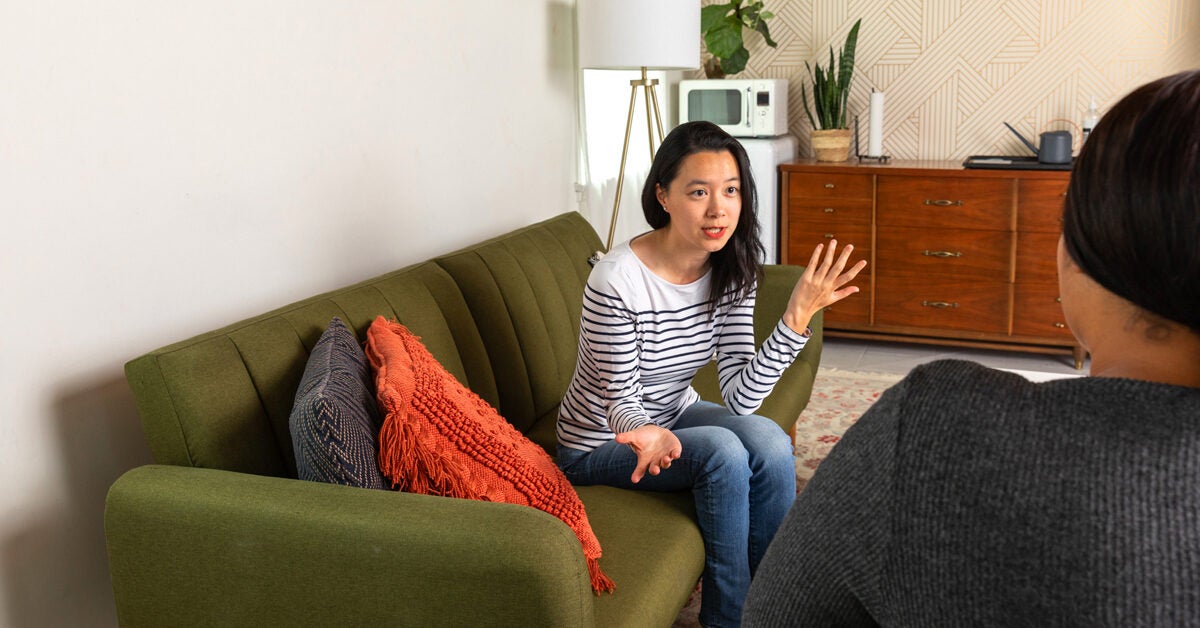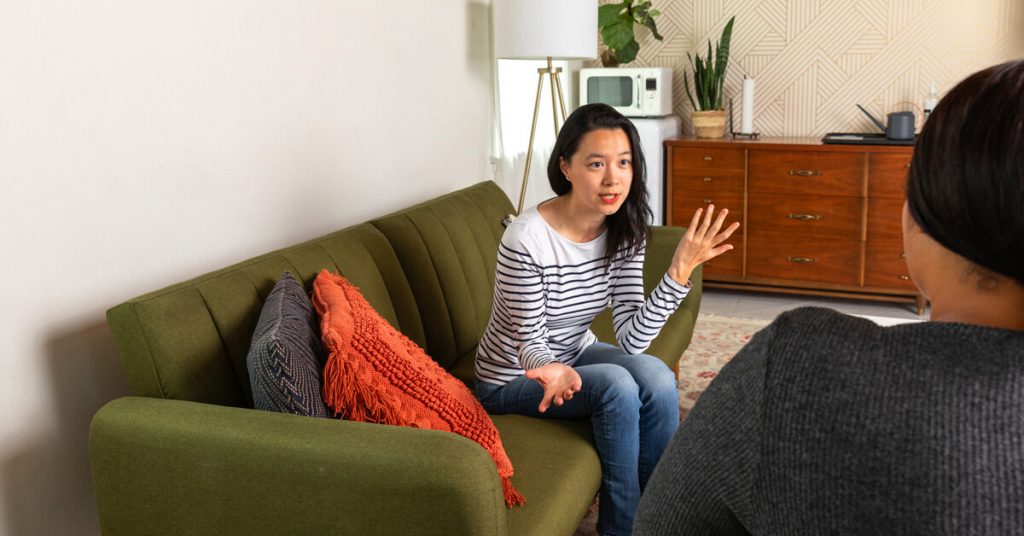
This article is part of a content partnership with our friends at Tempest, the first evidence-based digital recovery platform.
“Have you ever considered that you might have an anxiety disorder?”
Those are the words, spoken by my first-ever therapist, that changed my life and suddenly made everything make sense.
It was July 2015, and I’d just entered a 30-day rehabilitation program for alcohol use disorder (AUD) after drinking myself out of my dream job.
I thought I was there to figure out why quitting drinking was so difficult for me; instead, I was diagnosed with a generalized anxiety disorder (GAD) within a few days.
And it turns out, I’m not the only person who received a mental health diagnosis when seeking treatment for alcohol use.
A co-occurring disorder is when a person experiences both a mental health condition and a substance use disorder.
According to the Substance Abuse and Mental Health Services Administration (SAMHSA)’s 2018 National Survey on Drug Use and Health, approximately 9.2 million adults in the United States have a co-occurring disorder.
Co-occurring disorders can involve any of the following mental health conditions:
Although I was shocked to receive two diagnoses at the same time, it’s actually fairly common.
“Many people with an alcohol use disorder have a co-occurring mental health diagnosis and vice versa, so there is a strong correlation,” says Ruby Mehta, Director of Clinical Operations at Tempest, a digital program that helps people quit drinking.
“Among Tempest members, we find that over 60 percent of individuals meeting the criteria for excessive drinking have co-occurring anxiety and depression.”
For the first 29 years of my life, I didn’t know I had anxiety. I thought my overthinking and stress that seemed to never go away were just part of who I was and how I functioned.
To be honest, I never really thought about the word “anxiety” until my therapist brought it up during one of our first meetings in rehab.
She pointed to my fatigue, difficulty concentrating, irritability, restlessness, and uncontrollable feelings of worry as possible symptoms of GAD. Meanwhile, I just thought I was someone who’d been stressed everyday since the age of 15 and that this was all totally normal.
“Because anxiety is often hard to distinguish from everyday stress, anxiety disorders often go undiagnosed or treated,” says Mehta. “Many people drink to cope with anxiety or depression so it is very possible that people can be diagnosed with AUD before a mental health diagnosis.”
That was certainly the case for me; I knew I had a problem with alcohol long before I knew I had a problem with anxiety.
But the worst part of getting this diagnosis was the sudden realization that my excessive drinking had been making my anxiety worse.
Looking back, I now understand that I had anxiety since at least puberty but didn’t begin to drink problematically until my mid 20s. Still, I can look at the trajectory of my drinking and see exactly how my anxiety increased during those years — even though I thought the alcohol was actually easing my anxiety.
“Yes, drinking alcohol does make anxiety worse long term,” says Mehta. “In the short term, drinking alcohol may decrease anxiety as levels of GABA and serotonin increase initially. These neurochemicals make people feel calm and content.”
But this positive effect doesn’t last long. Mehta continues, “After the initial ‘buzz’ wears off, anxiety can spike as GABA, serotonin, and other endorphins that promote relaxation are depleted.”
Plus, she adds that the stress hormone CRF is released as alcohol leaves your body, increasing anxiety.
Looking back, I’m not all that surprised that my drinking and anxiety simultaneously got worse. They fed off each other in a catch-22 of messing up my life.
Growing up in a Cuban-American household, my family never talked about mental health. There was a lot of stigma associated with being called “la loca” (the crazy one) in the family.
As a result, anxiety and depression were never discussed, even though I was most likely terribly depressed as well as anxious as a teen.
At around age 16, I attempted suicide — which I now recognize was due to overwhelming anxiety about grades, school, and pleasing my high-achieving parents.
When I got to college, I managed a lot of my anxiety by forming a community of tight-knit friendships. But as friendships changed and faded in my 20s, my network of friends suddenly became smaller, and my anxiety started to make a sudden comeback.
What did I do in response? I drank.
I used alcohol as a coping mechanism, just like our culture often teaches us to. I don’t even remember the first time I saw or heard someone using a glass of wine as stress relief, but I clearly got the message.
Soon enough, that glass of wine turned to two, and then a bottle a night turned into one of those extra-large bottles. Every. Single. Night.
But I didn’t know that I was using alcohol as an unhealthy coping mechanism until I ended up in rehab, though Mehta says that there are some early signs to identify if you’re worried about your drinking.
“You can identify signs that alcohol has become an unhealthy coping mechanism by looking at why you are drinking,” says Mehta. Some questions to ask yourself:
- Are you drinking to escape a negative emotion?
- Are you able to have a good time or enjoy yourself without alcohol present?
“If you notice that you need alcohol in order to have fun or socialize or are using it to escape a negative feeling, it could be reaching unhealthy territory,” Mehta continues.
“Later signs of worsening AUD include feeling withdrawal symptoms the day after drinking — things like shakiness, restlessness, nausea, and also noticing that you need larger quantities of alcohol to feel ‘buzzed’.”
The day my mom took me to rehab was the worst and best day of my life.
Despite my parents ignoring my mental health issues when I was a teen, they knew that I needed help long before I did — and I’m glad I was able to receive it, thanks to a fantastic therapist. I’ve since continued to see a therapist for my anxiety disorder, but it hasn’t been easy.
Getting a diagnosis for mental illness at the age of 29 is inevitably scary. On one hand, I was dealing with problematic drinking, which I knew I could one day recover from. On the other, though, I understood that anxiety would likely be with me for the rest of my life, even if it wasn’t as intense.
But at the end of the day, I’m glad that I was able to learn about my anxiety because it has helped to inform who I am today.
Although I wish that I’d questioned my relationship with alcohol long before I needed serious help to quit drinking, I now recognize this is simply the path my life had to take.
Still, if I had to do it all over again, I would’ve at least thought about the reasons behind why I needed to drink wine at the end of a “hard day” and why that consumption grew over time.
Maybe if I’d known I was using alcohol to mask my negative feelings, I would’ve reevaluated my drinking much sooner. Or maybe I even would’ve seen a therapist long before I had to — and begun to take the steps to cope with my anxiety in more effective ways.
Irina Gonzalez is the Content Marketing Manager at Tempest, a digital membership program that empowers you to quit drinking and live alcohol-free. She is also a freelance writer covering parenting, recovery, and Latinx culture and the creator of the Pandemic Mama podcast. Her work has appeared in over 50 publications, including The Washington Post, O! The Oprah Magazine, Parents, and more. She is a new resident of Denver, where she lives with her husband, spunky toddler, and their fur babies. You can find more of her work on her portfolio site or by following her on Instagram.

